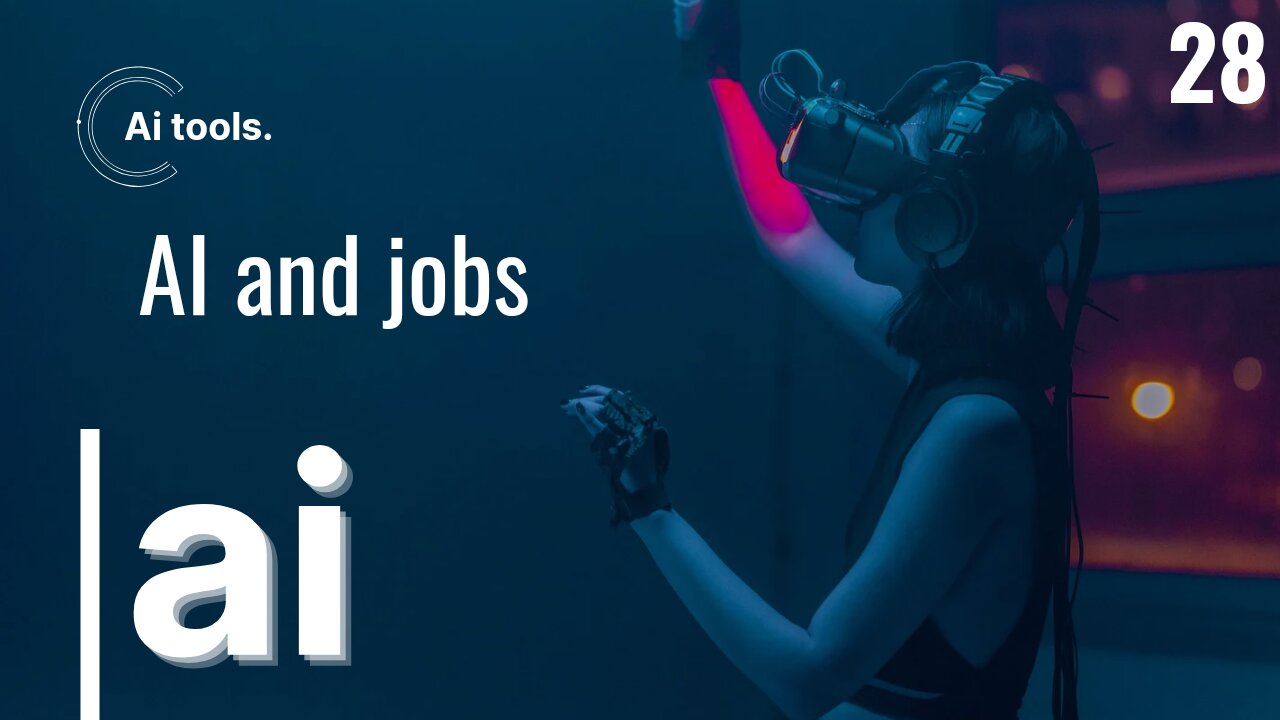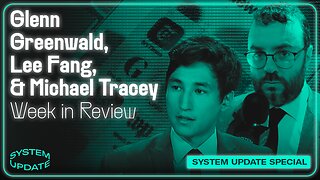Premium Only Content

AI and jobs Part 28
AI is automation on steroids. Before the rise of modern AI, automation had already had a huge impact on a lot of jobs. With the rise of AI, the set of things we can now automate is suddenly much bigger than before, and so this is also having an accelerating impact on jobs. How many jobs will be displaced? How many new jobs will be created? I don't think anyone has a firm answer to these questions yet, but let's take a look at some studies to try to understand what maybe ahead. McKinsey Global Institute did a study in which they estimated that 400 to 800 million jobs will be displaced by AI automation by 2030. These are very large numbers. On the flip side though, the same report also estimates that the number of jobs created by AI maybe even larger. There have been many studies other than the McKinsey Global Institute's one. There is a range in these estimates of numbers of jobs displaced and numbers of jobs created. For example, just focusing on the United States, the numbers on this slide are worldwide, but just focusing on the United States, PwC estimates about 16 million jobs displaced by 2030. Bank of England estimates 80 million jobs displaced by 2035. So no one can predict with certainty exactly what will happen in 2030, but there is a sense that the impact of jobs worldwide will be significant. I hope you find it as encouraging as I do though that AI is creating many jobs even as it is displacing some. I think many of the jobs of the future, we may not even have names for yet, be it drone traffic optimizer or 3D-printed clothing designer or as in healthcare, we'll have custom DNA-based drug designers. So even though there is concern about AI displacing jobs, there is also hope of many new jobs, maybe even more new jobs being created in the future. Now you might wonder, how do we estimate how many jobs are likely to be displaced? One typical way that these studies are carried out would be to take a job and think of the task that make up the job. For example, you might look at the task of the radiologist does or look at all the tasks that a taxi driver does. Then for each of the task, estimate how amenable it is to automation through AI and if a job comprises mainly task that are highly automatable, then the risks of the job being displaced will be higher. Most AI engineers find it more useful to think of AI being applied to task rather than to people's jobs. But this framework allows us to use AI's ability to automate tasks to estimate how many jobs are likely to be displaced. So which are the jobs that are most likely or least likely to be displaced through AI and automation? The OECD, a well-respected intergovernmental body, looked at the number of job types to estimate which of them are most and least likely to be automated. The future is hard to predict with certainty, but perhaps not surprisingly, many other jobs that comprise more routine repetitive work are more amenable to automation, whereas many of the tasks that are less repetitive, less routine or that involve more social interaction with people maybe less susceptible to automation. How do we hope citizens and nations navigate the coming impact of AI on jobs? Here are some solutions. First, conditional basic income. You may have heard of universal basic income in which a government would pay citizens with no strings attached. I think people do deserve a safety net. For individuals that are unemployed but are able to learn, I think a more effective version maybe conditional basic income in which we do provide the safety net but incentivize them to keep on learning and keep on investing in their own development. By providing a structure to help people that can learn do so, this will increase the odds that those individuals can re-enter the workforce, contribute to themselves, their families and to society, as well as to the tech space that is paying for all this. Second, building a lifelong learning society. By virtue of your taking this course right now, you may already be part of this lifelong learning society. The old model of education where you go to college for four years and then cost for the remaining 40, that just does not work anymore into these rapidly changing world. Through governments, companies, and individuals realizing that all of us need to keep on learning, this increases the odds that everyone will be better position, even as jobs may go away. So, take advantage of the new jobs being created as well. In the future, even after completing college, I think most individuals should keep on learning throughout their whole lives. Finally, there are political solutions being explored as well. Everything from incentivizing or helping with new job creation to legislation to make sure that people are treated fairly. I hope that society will figure out the right political solutions to navigate the coming impact of AI on jobs as well. One question now sometimes asked is what should you do if you want to work in AI? Recently, a radiologist resident served radiologists near the start of his career. He actually asked me. He said, "Hey, Andrew, I'm hearing a lot about the coming impacts of AI on radiology." He said, "Should I quit my profession and just learn AI and do AI instead?" My answer to him was no. You could do that. You can actually quit whatever you are doing and pick up AI from scratch. It is entirely possible to do that. Many people have done that. This one other alternative that you could consider though, which is, I said to this radiology resident, consider doing work in AI plus radiology because with your knowledge of radiology, if in addition you learned something about AI, you would be better positioned to do work at the intersection of radiology and AI than most other people. So, if you want to do more work in AI, it is possible in today's world to learn AI from scratch through online courses and other resources. But if you take whatever you are already knowledgeable in and learn some AI and do your area plus AI, then you might be more uniquely qualified to do very valuable work by applying AI to whatever area you are already an expert in. So, I hope this video helps you navigate the coming impacts of AI in jobs. Let's go on to the next and final video of this course.
-
 LIVE
LIVE
I_Came_With_Fire_Podcast
12 hours agoCHINA CENSORED AMERICANS | NO PRAYER DOWN UNDER | SAVE ACT
1,065 watching -
 2:06:42
2:06:42
TimcastIRL
5 hours agoPolice ARREST "MR SATAN" For Threatening To ASSASSINATE Trump, KILL ICE Agents | Timcast IRL
164K177 -
 LIVE
LIVE
XxXAztecwarrior
4 hours agoKilling Little Timmy's On Verdansk
684 watching -
 1:26:01
1:26:01
Roseanne Barr
9 hours ago $13.74 earnedAbsolutely Fabulous W/ Shannon Hughey #94
56.3K17 -
 LIVE
LIVE
SynthTrax & DJ Cheezus Livestreams
19 hours agoFriday Night Synthwave 80s 90s Electronica and more DJ MIX Livestream THE NEW MODEL - Variety Edition
400 watching -
 LIVE
LIVE
Anthony Rogers
1 day agoAnthony Rogers Show - 24/7 Stream
220 watching -
 2:11:55
2:11:55
Total Horse Channel
13 hours ago2025 CMSA Extravaganza | Mounted Shooting
30.1K1 -
 LIVE
LIVE
VapinGamers
4 hours ago $1.10 earnedGedonia 2 - Early Release Preview and Co-Stream! - !game #Sponsored
251 watching -
 1:32:39
1:32:39
Glenn Greenwald
9 hours agoWeek in Review: Douglas Murray VS Dave Smith Debate, Tariffs, and More with Glenn Greenwald, Lee Fang, & Michael Tracey | SYSTEM UPDATE #438
121K49 -
 LIVE
LIVE
EnDuEnDo
3 hours ago🚨Vairety Stream 🎮 Push to 500 Followers 🚀 Chill Vibes 😎
95 watching